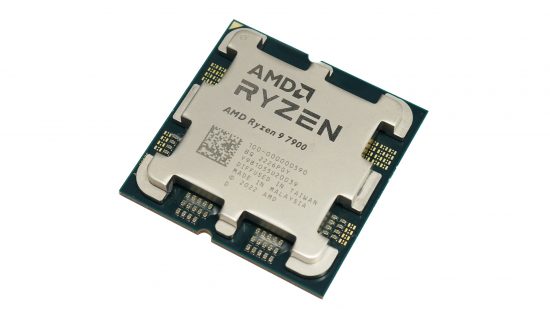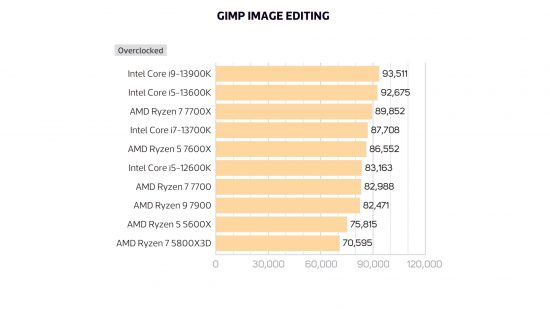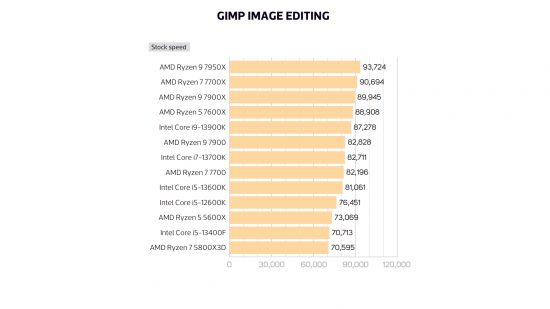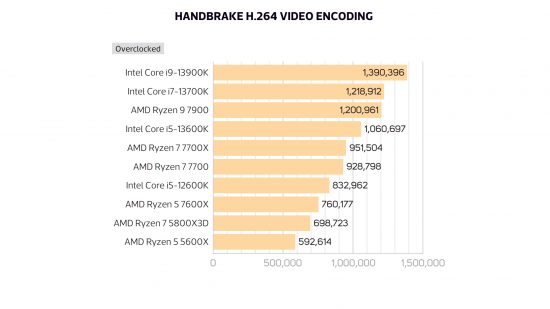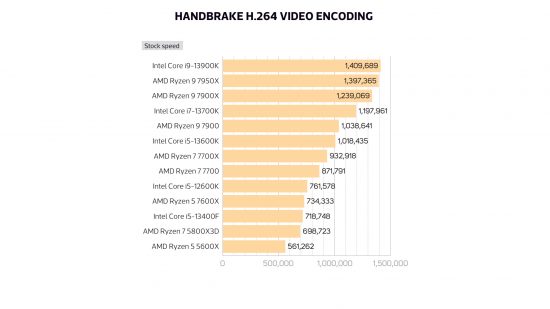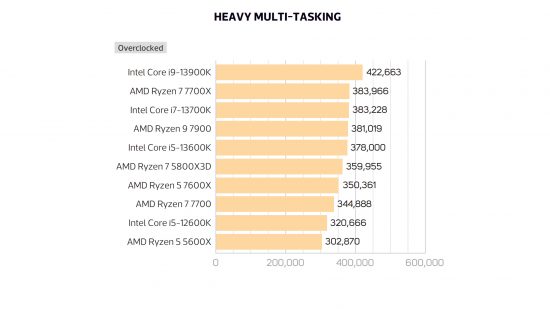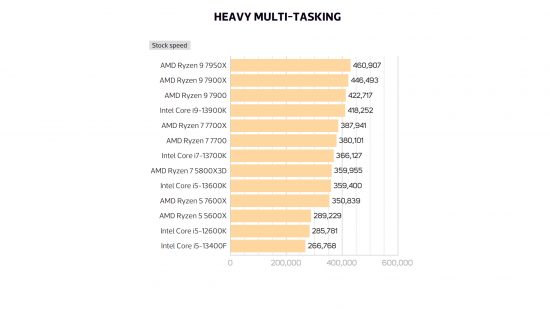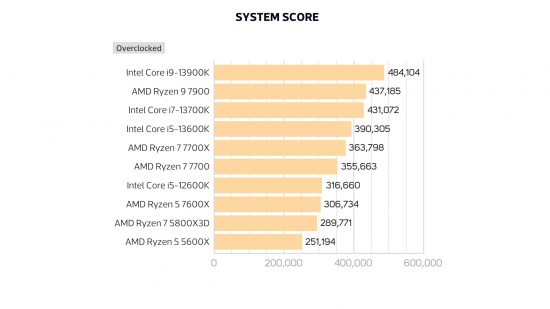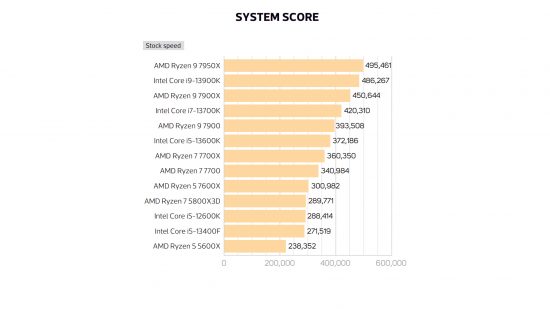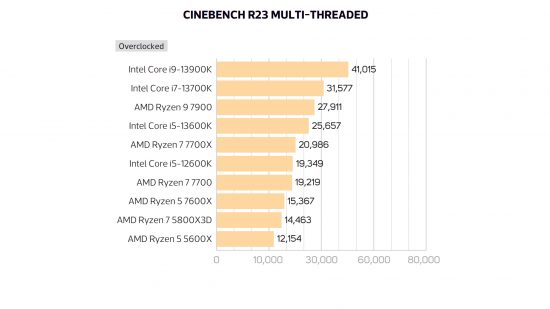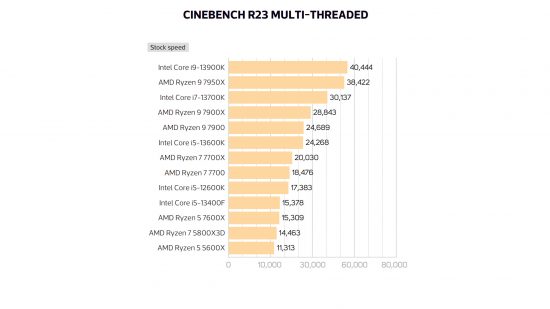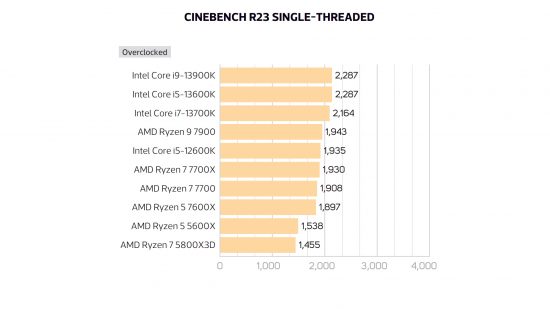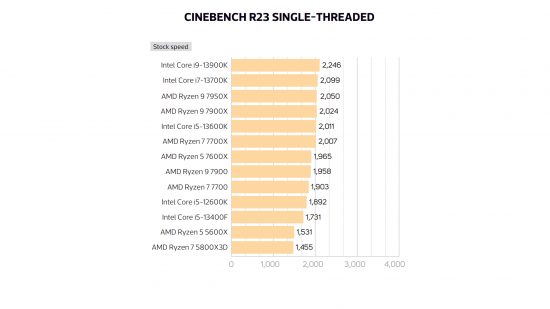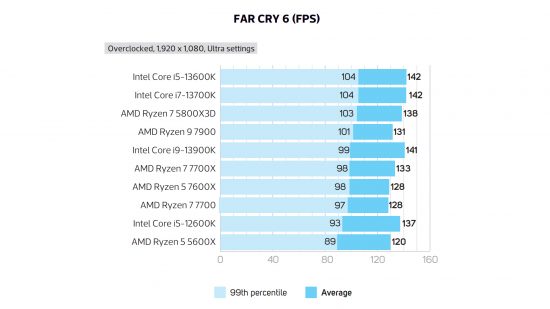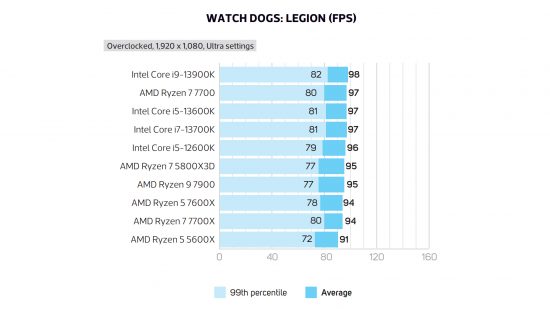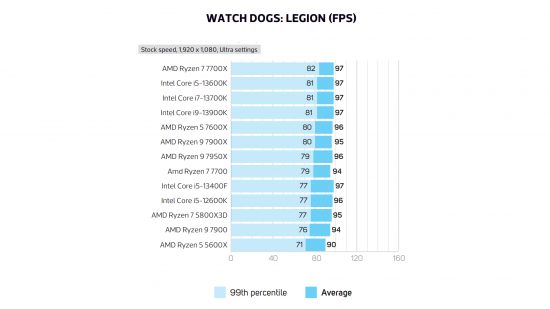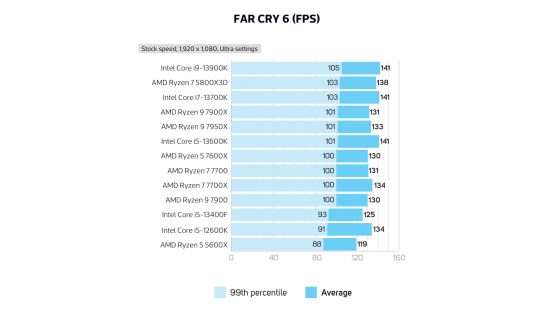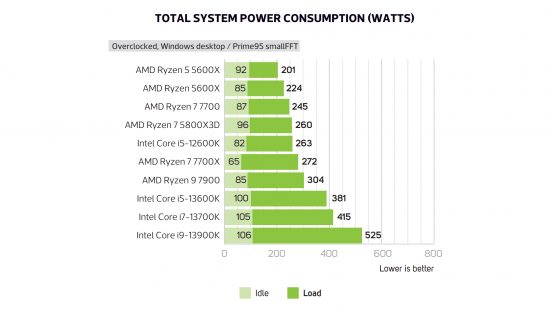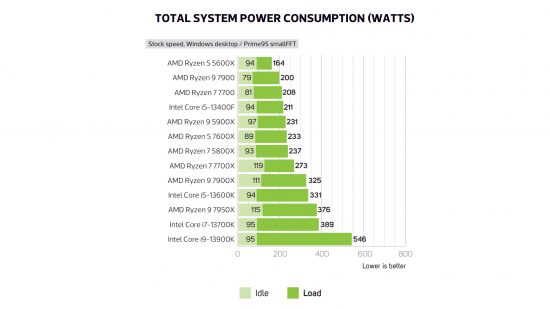Our Verdict
83%Incredible efficiency and super-low temperatures make the Ryzen 9 7900 a solid choice for its niche.
AMD’s new Ryzen 9 7900 is a TDP-trimmed version of the 12-core Ryzen 9 7900X. Like its cheaper sibling, though, it doesn’t save much cash compared to the X-edition CPU, sitting at a price of £430, while we could find the Ryzen 9 7900X going for just £13 more.
At Custom PC, we’ve been reviewing the latest CPUs since 2003, and we’ve tested and overclocked hundreds of CPUs, going right back to the Pentium 4 and Athlon XP era. We’ve developed an expert testing methodology that covers all the key areas of performance, including single-threaded and multi-threaded performance, as well as gaming.
Our benchmarks include our very own RealBench suite, which had a GIMP image editing test that stresses single-threaded performance, and a Handbrake H.264 video encoding test to gauge multi-threaded performance, as well as multi-tasking tests.
We also use Cinebench’s single and multi-threaded tests, Far Cry 6 and Watch Dogs: Legion. For our game tests, we record the 99th percentile and average frame rates, and finally, we also measure the idle and load total system power consumption at the wall, while running Prime95’s smallest FFT test with AVX disabled.
Both the Ryzen 9 7900 and 7900X have 12 cores and 24 threads (via SMT), which is the same as the Ryzen 9 5900X, but the Ryzen 9 7900 also benefits from the strength of the Zen 4 architecture and a 5nm manufacturing process, as well as double the amount of L2 cache at. The Ryzen 9 7900 also includes AMD’s Wraith Prism cooler, which is fine for cooling this CPU at stock speed, where it has a TDP of just 65W.
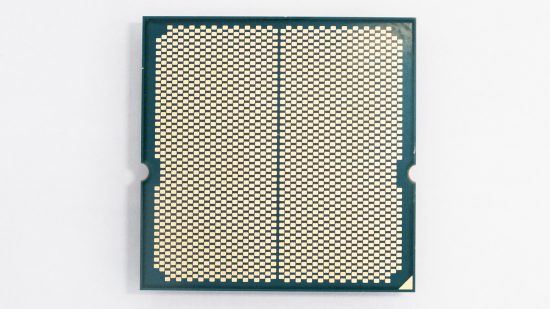
This is much more significant than the drop from 105W to 65W with the Ryzen 7 7700, though, because the Ryzen 9 7900X’s TDP is a whopping 170W.
The impact was profound in our thermal tests too, with the new CPU barely topping 61°C under load and having the second lowest peak power draw on test – the total system power consumption was half that of our LGA1700 rig with Intel’s similarly-priced Core i7-13700K installed.
Despite this limit, the Ryzen 9 7900 was still able to hit a peak boost of 5.45GHz, which was just 200MHz slower than that of the Ryzen 9 7900X. However, the all-core boost was unsurprisingly dismal at just 4.3GHz. That’s a whole 1GHz lower than the X-edition chip.
Ryzen 9 7900 application performance
As you’d expect, the Ryzen 7900 was slower than the 7900X in benchmarks, but it was still faster than the Core i7-13700K in our RealBench image-editing and multi-tasking tests, and its total system score of 393,508 was only just short of the latter’s 420,310.
There was a bigger gulf between the Ryzen 9 7900 and the Core i7-13700K in Cinebench, though, with a multi-threaded score of 24,689 compared to 30,137.
Ryzen 9 7900 gaming performance
The Core i7-13700K also had the better of the Ryzen 9 7900 in our game tests, with its average frame rate in Far Cry 6 beating the AMD chip by 11fps, though the margin was much tighter in Watch Dogs: Legion. We’re expecting AMD’s Zen 5 gaming performance to improve when the company introduces its 3DX chips later this year.
Ryzen 9 7900 overclocking and power draw
With a decent amount of thermal headroom at our disposal, we also had a go at tweaking the 7900, but we could only hit an all-core manual overclock of 5.2GHz and even applying a vcore of 1.2V resulted in very high temperatures.
With this clock frequency falling well short of the peak boost at stock speed, we applied PBO and Automatic Overclocking and while the peak boost didn’t go higher, the all-core boost rose by a massive 700MHz, albeit with a corresponding increase in total system power consumption from 200W to 304W.
This wasn’t enough clock speed to topple the Ryzen 9 7900X, but it did allow it to beat the Core i7-13700K’s system score, nearly match its video-encoding score and cut its Cinebench deficit in half.
Pros
- Incredible efficiency
- Easy to cool
- Very low power consumption
Cons
- Slower in games than cheaper CPUs
- Poor multi-threaded performance out of the box
- Core i7-13700K offers better value
Ryzen 9 7900 specs
The AMD Ryzen 9 7900 specs list is:
| Base frequency: | 3.7 GHz |
| Max boost frequency: | 5.4 GHz |
| Core: | Zen 4 |
| Manufacturing process: | 5 nm |
| Number of cores: | 12 |
| Number of threads: | 24 |
| IGP: | AMD Radeon Graphics |
| L3 cache: | 64 MB |
| L2 cache: | 12 MB |
| Memory controller: | Dual-channel DDR5, up to 5200MHz |
| Packaging: | AMD Socket AM5 |
| Thermal design power (TDP): | 65 W |
| Simultaneous Multithreading (SMT): | Yes |
| Features: | Precision Boost 2, Precision Boost Overdrive 2, FMA3, F16C, SHA, BMI / BMI1 + BMI2, AVX-512, AVX2, AVX, AES, SSE4a, SSE4, SSSE3, SSE3, SSE2, SSE |
Ryzen 9 7900 price
The Ryzen 9 7900’s price offers reasonable value for the multi-threaded performance on offer, though it’s not much cheaper than the Ryzen 9 7900X.
Price: Expect to pay $440 USD / £430 GBP
Ryzen 9 7900 review conclusion
The Ryzen 9 7900 is an interesting CPU, as it makes great use of Zen 4’s amazing efficiency and provides premium performance for a huge amount less power and lower temperatures than practically any other CPU we’ve tested recently.
While it was a fair way behind the similarly-priced Core i7-13700K in some tests, it drew half the power and will require far less potent cooling too. If you want to build a cool and quiet Socket AM5 system without going overboard on cooling and power use, the Ryzen 9 7900 is a solid choice. Check out our guide to the best gaming CPU for a range of CPUs to suit different needs and budgets.
